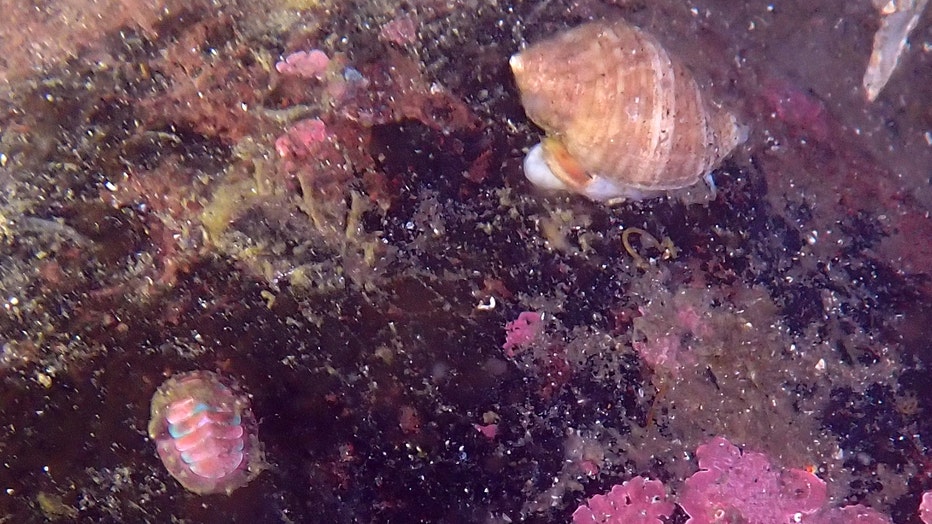Sea Critter Rescue: Divers save thousands of creatures from certain death during Port Townsend jetty removal
PORT TOWNSEND, Wash. - When you think of saving sea life, you may think of protecting the larger residents of Puget Sound, such as sea lions, orcas, whales or waterfowl.
However, it's the small and vitally important creatures that are the focus of one dedicated group of divers, who are on a mission to "Save the Sea Creatures."
The volunteer team is rescuing tiny, but mighty, sea life that live on old jetties and other structures that are scheduled to be demolished. Puget Sound's ecosystem starts very small, and ends with whales and other giants of the deep. Without the tiniest members of the undersea world, an important part of the food web would collapse.
The Sea Life Rescue Team says once structures like a jetty are pulled from the water, whatever has made its home there will likely die, so divers have been rescuing creatures in Port Townsend over the last few months and transplanting them in a nearby refuge, built just for them, to preserve the small critters that are so vital to our ocean ecosystem.
In the magical undersea world at the old south jetty at Hudson Point, anemones sway in the currents, schools of fish swim seamlessly through the sea, and sea stars and snails cling to old rock and pilings.
Thousands of marine organisms create a symphony of sea life, the tiny creatures making the wood pilings and rocks their high rise home at the jetty for the past 80 years.
"There’s hundreds and thousands of marine organisms that live on and around the jetty," said Betsy Carlson, Citizen Science Coordinator at the Port Townsend Marine Science Center.
So, when it was announced that the old jetty at Hudson Point would be ripped out and replaced, the situation became urgent to save even the smallest long-time residents from getting crushed and killed.
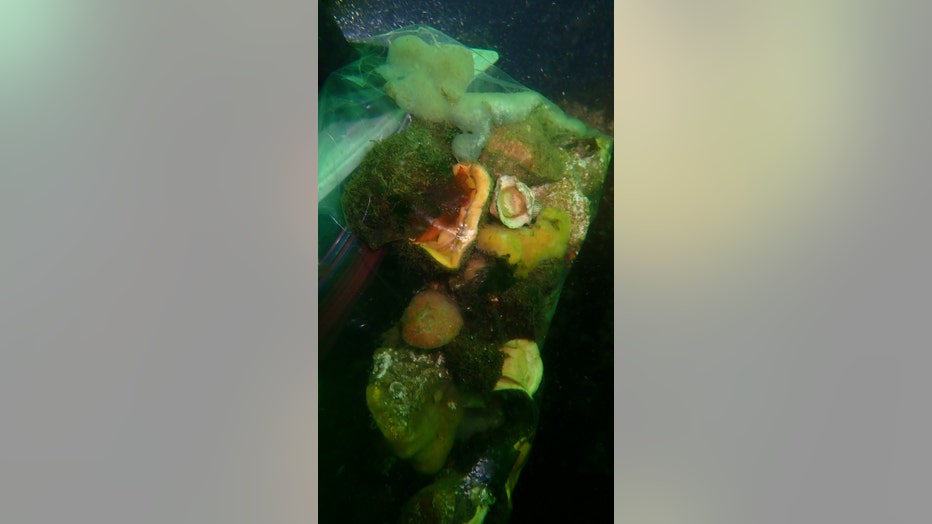
"As soon as you remove them out of the water, and put those rocks on a barge, or the pilings somewhere, they are dead. They don’t have a chance," said Carlson.
When "sea critters" are in danger, that's when Randy Williams and his volunteer team of divers suit up and answer the call.
"Anywhere from sea stars, to small clams, a lot of shrimps, small crabs we’ll be going after," said Williams, Washington Scuba Alliance Vice President and volunteer.
Williams and his team serve as a special moving service for often-forgotten sea life that make places like the jetty their home. He says a special catch bag provides the transport.
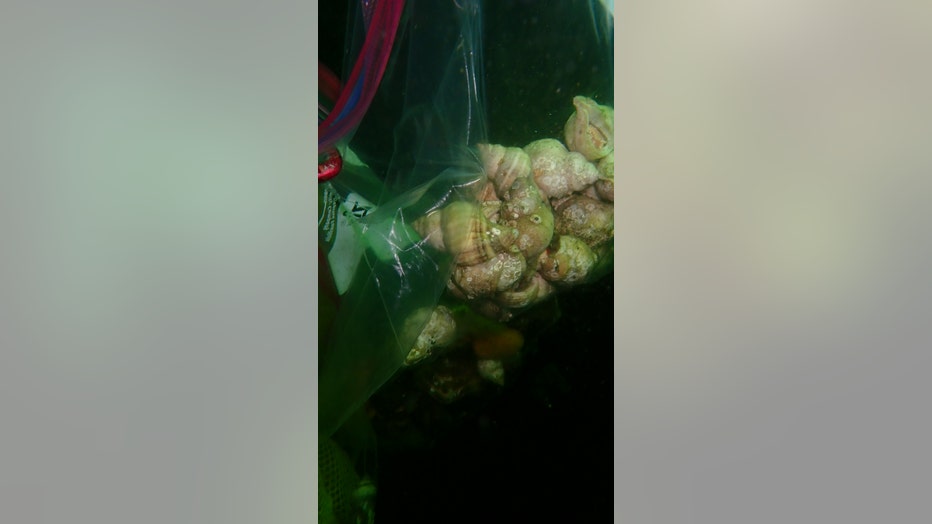
The precious cargo is tiny, some no bigger than a fingernail.
"Sponges, tomaquets," said Williams, listing some of the organisms they plan to save.
Tools like modified plastic pain scrapers help to pry off the more resistant residents that cling to the pilings.
"I chop off the smart corners and I take a heavy sand block and smooth it out, take the edges off," said Williams, pointing to the pliable scraper. "A lot of things that like to stick, cucumbers and sea stars and things like that, we can get them off quite easily."
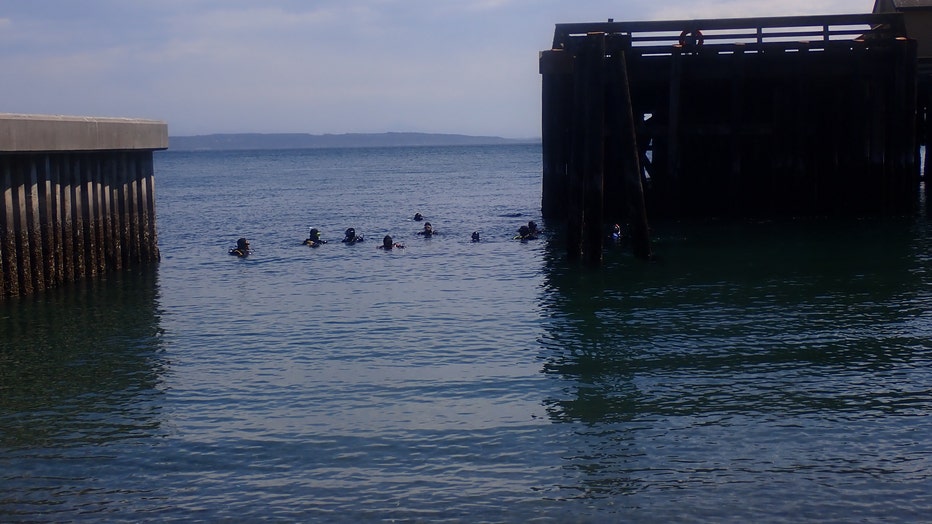
The sea creatures are then personally transported by divers who swim them over to a new rock reef, built just for them. The old breakwater sits just a few feet away from the new reef, which is located about 30-60 feet below the surface.
"We are going to transfer a lot of that marine life, as much as we can," said Williams.
"This is an opportunity to give many of the critters a chance," said Carlson.
Boat captain and co-owner of Port Townsend's Octopus Gardens Diving, Don Peterson, took our FOX 13 crew over to the dive site as the critter rescue was underway.
"The diver is right over there," said Peterson, pointing to a volunteer. "They will move all the animals across, through here, and relocate them."
He says the transplants will fill in the new reef and attract larger forms of marine life.
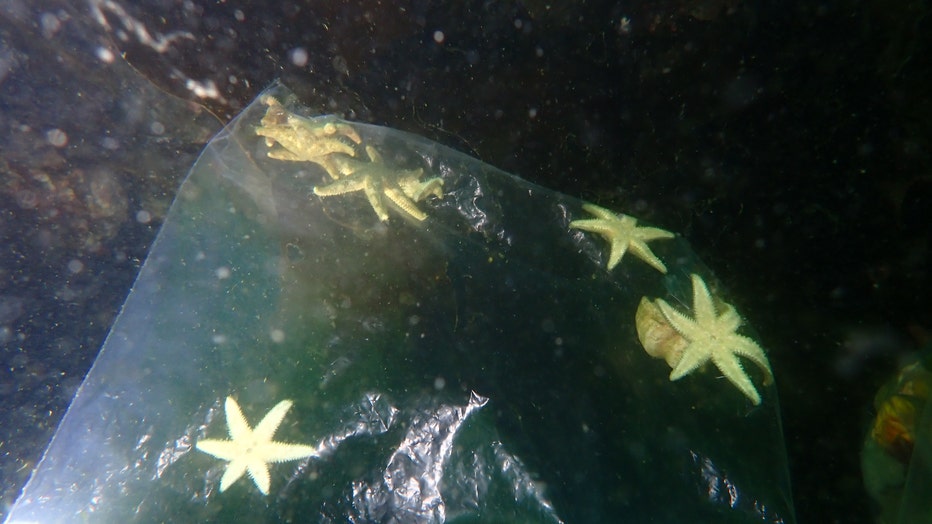
"For the diving community, that’s a really, really, really, good thing," said Peterson.
"This also helps to expand ecotourism for Port Townsend. More divers come to dive in the area. Those divers spend money with local businesses. It's a win-win situation," said Williams.
A wolf eel is already making the reef its home and a giant Pacific octopus has also taken up residence.
"Starting to see another octopus down in here," said Williams, pointing out a den during a recent survey. "We are starting to see lots and lots of sea cucumbers moving in."
Williams says he was excited that so many divers volunteered to save the small, but important creatures of the old south jetty.
"All of this came together as a larger collaboration that just falls under the umbrella of doing the right thing," said Eron Berg, Port Director.
"To have this many people in the scuba community in the Pacific Northwest, does my heart good," said Williams.
He says in total, they moved more than 5,000 invertebrates from the old breakwater to the new reef area. Williams says the team plans on installing a live video camera to show off the life on the new reef in the next few months.
Williams says funding for the breakwater overhaul came from the Port and from grants through government sources. He says the Washington Scuba Alliance and Port Townsend Marine Science Center rely on donations for programs like the critter rescue.
